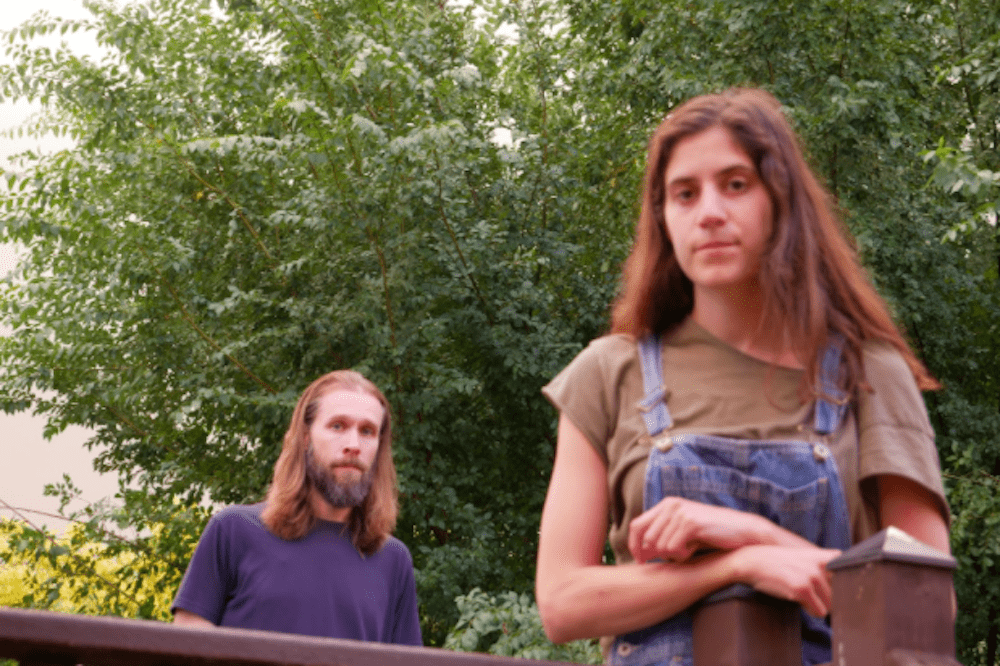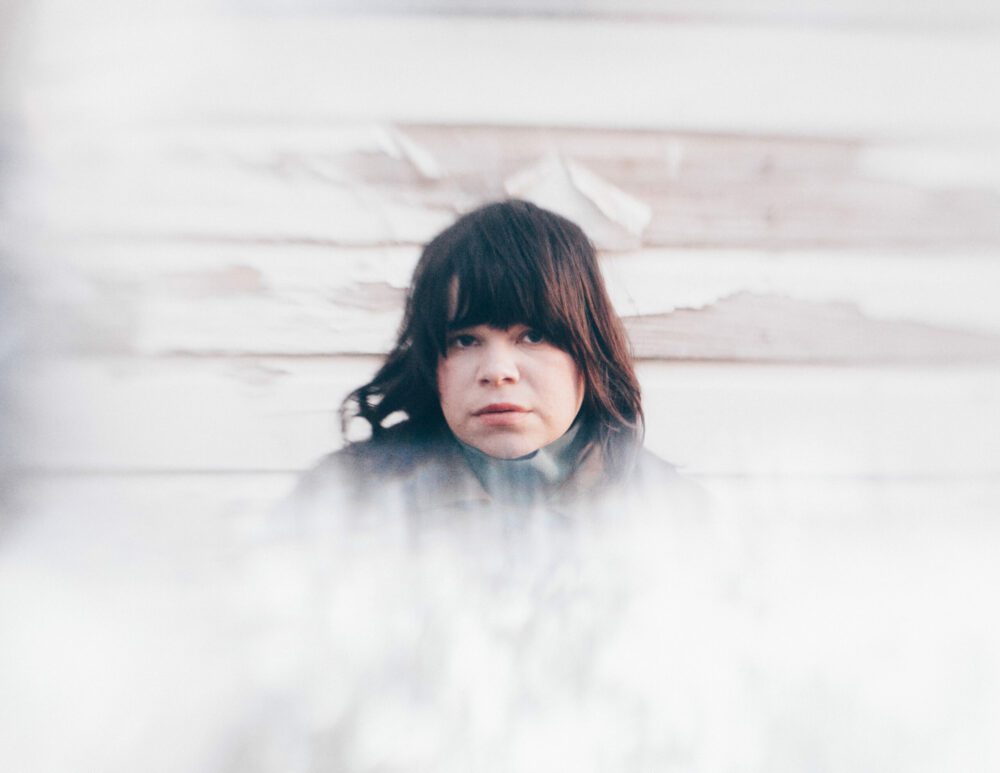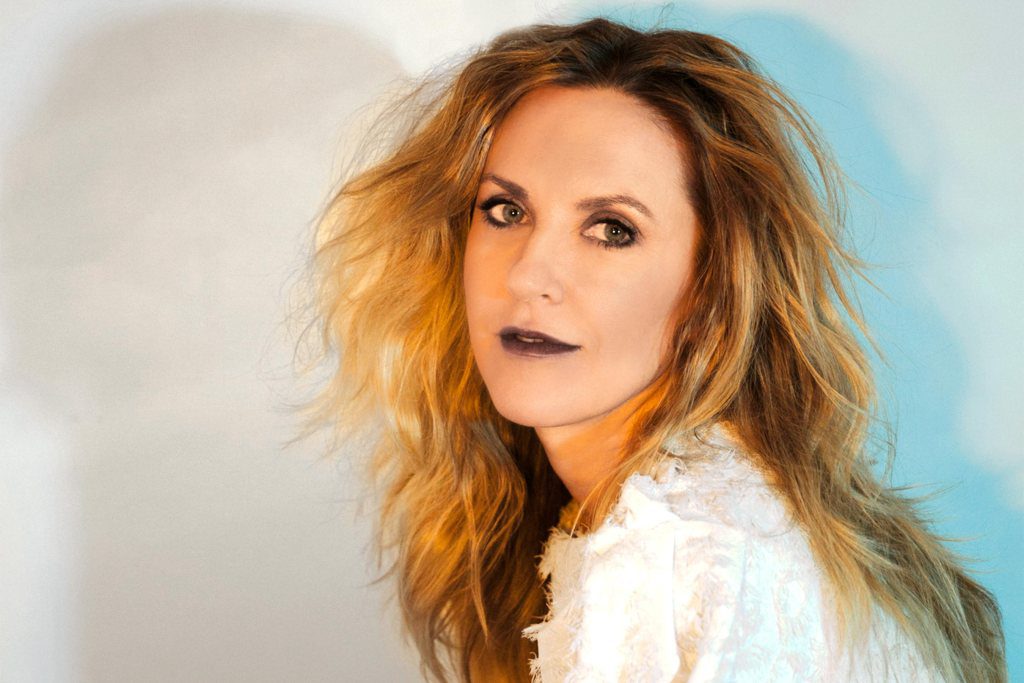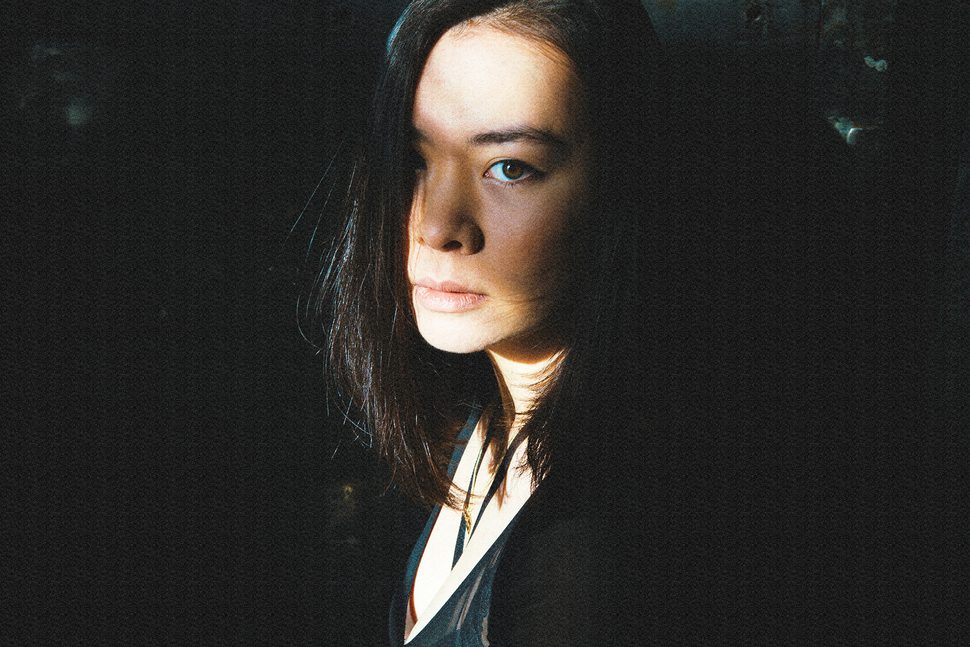

Most art depicting trauma focuses on the uncomfortable parts of it: the painful feelings, the distressing memories, the dissociation. Katie Solomon, lead vocalist for Boston-based indie rock band Slow Dress, is familiar with these aspects — but her group’s latest single “Back Into My Body” instead focuses on what there is to celebrate: the freedom and growth found on the other side of trauma.
Solomon’s voice is rich and comforting as she sings against hopeful piano chords in a warm folk-pop style reminiscent of Laura Marling: “The winter is coming again/Like last year but everything’s changed/I’m laughing at least a couple times a day/We’re holding each other/In the way we did before the last few years.” Then, the tempo picks up with an atmospheric beat as she continues, describing her journey of leaving her body due to trauma and slowly coming back in and “dancing again.”
This song was meaningful to Solomon, who is currently in graduate school for mental health counseling, due to trauma she experienced over several years. But while the band was recording it, it took on new meaning in light of guitarist Bredon Jones’ recent cancer diagnosis. As he works through a different type of physical trauma, he says he’s come to relate to the lyrics in an empowering way.
“Where you can think of fighting cancer as a battle or something like that, you can also think about it as realigning your body with your true nature,” he explains. “The core thought is that you’re not fighting something that’s in your body. Instead, you’re taking your body and realigning it with your diet and physical activity and mental outlook, reducing stresses and anxieties.”
“Back Into My Body” was meant to be simplistic to provide an intimate feel, as if the listener were right there with the band. They ended up using no guitars at all, which helped create a lighter, softer feel than their previous singles, all of which were recorded in the Nashville with Collin Pastore (Lucy Dacus, boygenius) studio in Nashville. Slow Dress hopes to release the six songs as their debut EP, eventually.
Solomon — who cites Julia Jacklin, Father John Misty, and PJ Harvey as her biggest influences — was playing in Boston indie band Jakals when Jones met her at one of their shows and asked to play with the band. In November of last year, Jakals dissolved, and Solomon and Jones split off to form Slow Dress.
In contrast to their previous work with Jakals, where they provided all the instrumentals themselves, they put a lot of the music in the production team’s hands for Slow Dress, including not just Pastore but also engineers Scottie Prudhoe and Preston Cochran. “We were nervous about it going in, but we were happy with how it came out,” says Jones. The duo reunited with Jakals bassist Zach Wulderk to record the session.
They’ve released three singles so far: the dark, earthy “Everyday Affair,” a piece of commentary on the homogeny and mind control imbricated in the modern world; the mystical, fairy-tale-like “Butterfly,” which expresses frustration with humans’ indifference toward the planet and one another; and the impassioned “Stew,” where Solomon imagines the afterlife and sings about wanting to live life fully. Overall, Solomon says their music aims to navigate the “contradictory nature of being human.”
“I think I struggle in normal language to feel like I’m actually expressing my experience, in that I almost feel like I want to be able to say multiple sentences at the same time… in a good amount of the songs, I’ll try to express different things that I’m feeling, even if they contradict,” she explains. “Creating songs feels like it’s giving voice to all these things happening at once, all these contradictory feelings we’re experiencing at any given time, and kind of validating all those different experiences.”
All the proceeds from “Back Into My Body” will be split between Brookline Mutual Aid (which Solomon says she has personal connections to) and National Bail Out. “We believe that redistributing as much money as we can is one important way to support people who are oppressed by the current system and people fighting against that oppression,” says Solomon.
Solomon hopes listeners take a sense of hope from the unexpectedly joyful turn the song takes, especially during a time when many people’s mental health challenges are being triggered. “I was in a place for a bunch of years where I was just feeling really trapped and really hopeless and sort of had no sort of concept of the future or how to feel good in my life and in myself,” she says. “I think it’s a constant practice — I’ve been doing a lot of meditation and self-reflection — but I think it’s possible to come back into a sense of connection to yourself.”
Follow Slow Dress on Facebook and Instagram for ongoing updates.




